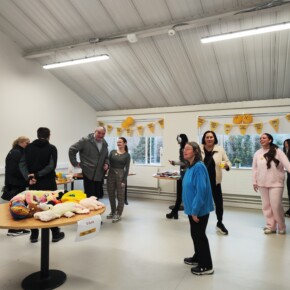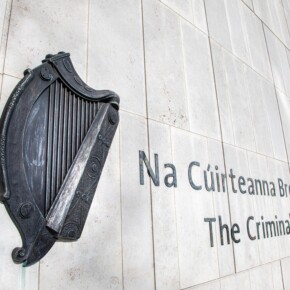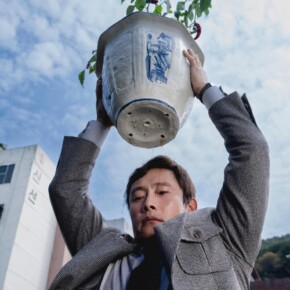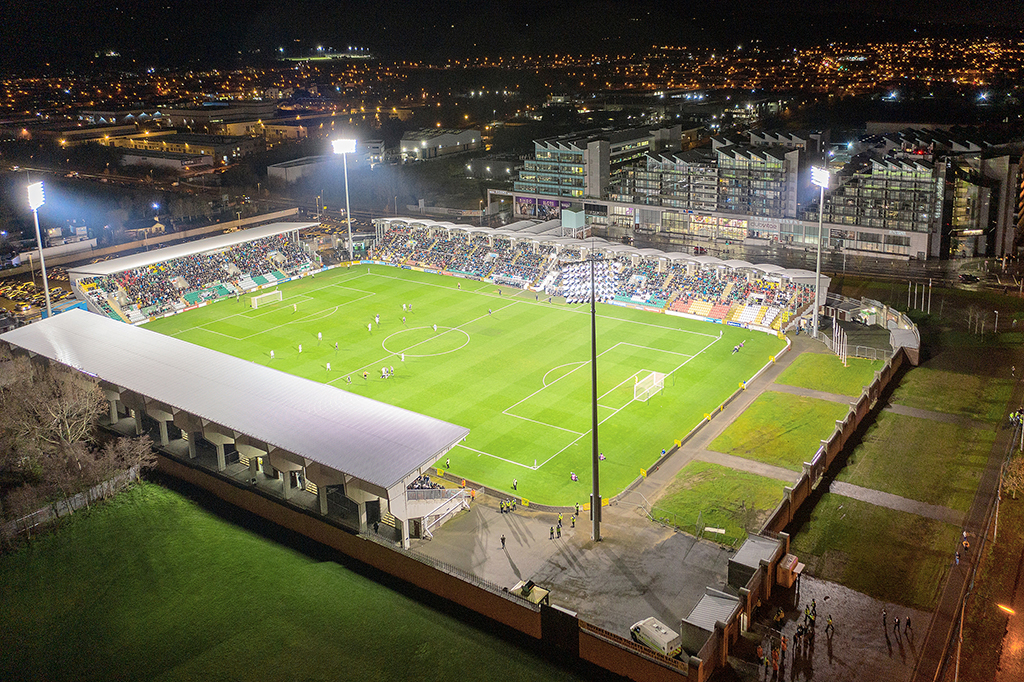SDCC councillors call for more sports pitches
Mike Finnerty 22 Oct 2025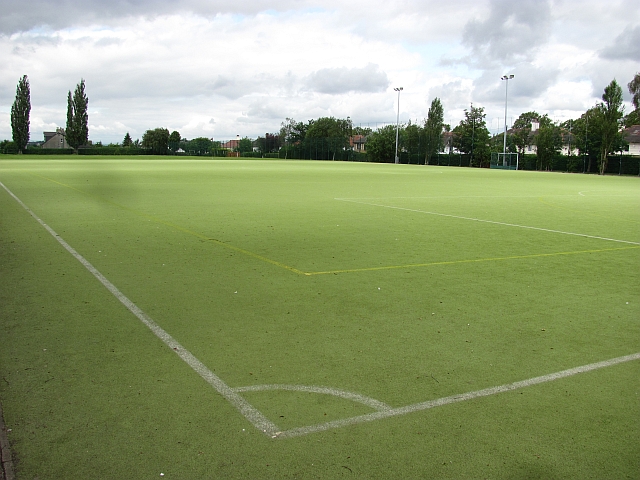
Last week’s meeting of South Dublin County Council saw a clash between government and opposition councillors on the environmental impact of pitches.
On one side of the argument, councillors touted the physical and mental health benefits of more pitches, while the other side of the argument saw councillors make arguments about the environmental impact of all-weather astroturf pitches.
A proposal from Fine Gael councillor Caroline Brady looked to increase the number of pitches provided and operated by South Dublin County Council.
“We are certainly delivering quite a lot, and we do welcome all the work that is being done, but every year when it comes to pitch allocations, we are taking a deep breath because we know there are so many clubs that simply aren’t meeting the cut.”
The Lucan councillor said, “there are clubs that are simply unable to increase their membership and have had to let teams go because they haven’t been able to get time on pitches. Despite the great work that is being carried out, it’s not enough. We need to do more, and we need to identify areas where we can deliver pitches for our teams across the county.”
The Fine Gael councillor noted that women’s teams lose out in terms of pitches and called on the council to address the gender imbalance.
“We’ve been talking here about obesity and exercise; this is something to get our young people out and give them a place where they can exercise and look after their mental health.”
Independent councillor Mick Duff thanked local schools for offering up pitches for local clubs, noting that local education facilities are stepping in where the council can not.
“They offer up their all-weather pitches; this is important because there are so many weeks during the winter months when there is no football. There is no point in having a team that can’t train. It’s great in the summer months when the leagues are off but the leagues run in the winter. That’s the problem we have in this country.”
The Tallaght Central councillor called for a “total sea change” with regard to sporting policy in Ireland.
However, People Before Profit councillor Jess Spear raised concerns about the environmental impact of all-weather pitches.
“I’m not really sure what more the council can do; if schools have pitches, we should absolutely be asking them.”
The fellow Tallaght Central councillor expressed concern about the “negative impact” of microplastics used by astroturf pitches.
“From the forever chemicals that are used in the synthetic grass to the carcinogenic materials used in the rubber infills, they are banned by the EU. It is incredibly damaging to wildlife,” Spear stated.
She noted that the materials are being banned in Europe from 2031 and questioned if South Dublin County Council are going to comply with European rules.
“I have concerns that we might dramatically increase the number of astroturf pitches,” referencing the ban, noting that there have been 150 pitches built across Dublin since 2000.
“I don’t think we should be covering everything in plastics to deal with the problem,” the People Before Profit councillor said.
Social Democrats councillor Eoin Ó Broin pushed back against Spear’s claims, saying “we are not covering everything in plastics. The pitch in Lucan is fantastic, the people believe so, and the people want this. It takes pressure off the regular pitches, which are waterlogged more and more because of climate change.”
The Clondalkin councillor noted that in 2020, the council agreed to a policy about pitches within the local authority and questioned if the policy could be revisited.
Independent councillor Liona O’Toole questioned how successful the existing pitch strategy has been since it was implemented in 2020 and said that all-weather pitches “seem to be the way to go.”
Sinn Féin councillor William Carey said, “no matter how many pitches we propose to bring in, I can guarantee you they will never be enough. I firmly believe that the only real response we have as a council is to provide more artificial pitches.”
Carey noted Spear’s points about the health impacts, and said “we can change material; we need to move forward with the pitches.”
The Clondalkin councillor said, “during any wet weather, you’ll be looking to have one, possibly two games on a pitch, then you’re running the risk of a pitch being unplayable for 2-3 weeks. On an artificial pitch we could have 6 games a day.”
He said that would help clear the backlog and “that means our young people are out there getting that fitness they need.”
Carey’s colleague Niamh Whelan said she spends her weekends pitchside, and that there is “heartbreak” whenever a game can’t be played due to weather or backlogs, and girl’s teams are the ones to lose out.
She said that Spear’s concerns about the environmental impacts don’t “trump the mental health of our children and young adults.”
“The council are very open to exploring new technologies,” she said.
County manager Teresa Walsh pointed to the upgraded pitches in the area since the strategy was implemented in 2020.
“We have about 170 pitches serving 1000 clubs with 19,000 young people and adults taking part each week,” she noted, adding, “it’s a major part of our county.”
Walsh said that South Dublin County Council, by size, is relatively small but densely populated, and said that land in the area was finite, which adds to the logistical headache.
Walsh said, “even though we are increasing the number of grass pitches, we don’t yield or orpitmise the number of teams that can get onto them,” noting a recent wet winter causing 60% of pitches in the area being out of action.
Addressing Councillor Spear’s environmental concerns, Walsh said the council were aware and complying with the future European ban on certain materials.
Ireland’s wet summers are also a factor in asking for more all-weather pitches, she noted.
Colm Ward, SDCC’s economic manager, said that the financial position of the council would allow for more than the planned five all-weather pitches that are in the works.
“With every opportunity comes a challenge and a decision that will end up in this chamber as a Part 8 decision. The time in delivering a proposal will result in objections and challenges, and all of the perceived pitfalls for deliveries of pitches,” he told the meeting.
“It does need brave decisions, and I appreciate the decisions we all have to make; the ambition is there and the funding will be there, but the commitment from all sides needs to be there.”


